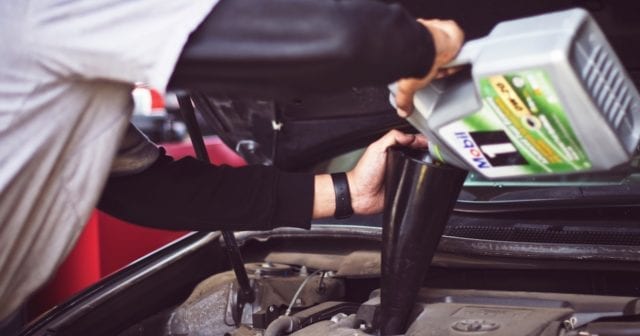Vehicle maintenance and repairs usually creates one of two feelings in people: annoyance or stress. Many drivers get annoyed because they don’t have time to take their car into the shop and they don’t want to deal with mechanics. Drivers who stress out are often fearful of what might be found and how much it’s going to cost.
If you want your vehicle to last as long as possible, work when you need it to, and be safe while you drive, there are some types of maintenance you just can’t ignore.
Regular Oil Changes
Depending on the age of your vehicle and other factors, you may need an oil change every 3,000, 5,000, or even 10,000 miles. Whatever schedule you’re on, don’t skip this routine maintenance. Getting rid of the dirty, old oil helps your vehicle run more efficiently and extends the life of your vehicle. It’s also a good time for a visual inspection by the mechanic to check other issues.
You should also be checking your oil level regularly, especially if your vehicle is older. Over time small oil leaks can occur and eventually cause major engine problems. If you see that your oil level drops too quickly, don’t add oil and move on. Get your vehicle into the mechanic for a thorough check.
Tire Maintenance
There are different levels of tire maintenance. The most basic kind is to check your tire pressure every 1,000 miles or so. If you see that it’s going down or consistently low and need more air, it might be time to get new tires. You also want to have your tires rotated and balanced on a regular basis. Taking care of your tires helps them last longer, improves your drive, and increases your gas mileage.
Brake Maintenance
During your regular oil change, ask the mechanic to take a look at your brakes. A visual inspection should be free (make sure it is before they do it). This will help you catch problems early and keep the cost of repairs to a minimum. When you begin to notice problems or strange noises when you apply the brakes, get your vehicle in for a more thorough look. Your ability to slow down and stop are directly impacted by the quality of your brakes. This isn’t a repair to put off until later.
Transmission Problems
Transmission “maintenance” isn’t part of a vehicle’s routine service. But it is something you need to think about, especially as your vehicle begins to age. If your vehicle is a manual, you’ll need to have it looked at every 30,000 to 60,000 miles. But if your vehicle is a standard, as most are, you might not need to worry about your transmission until the 60,000 to 100,000 mile mark.
When you begin to notice problems when you drive, go ahead and get it in to the mechanic. You may just need to have your transmission fluid replaced or it might be the start of a more serious issue. What kind of problems might you notice on the road?
- Difficulty downshifting
- Hard shifts as you change speed
- Slipping — your speed and throttle response doesn’t respond as normal because your transmission is unable to stay in gear
Check Engine Light
For some people, a check engine light sends them into a panic and they immediately make an appointment to have their vehicle checked. But for others, it’s a thing to ignore, either because you don’t think it’s important or you’re worried it could be very important. A check engine light can mean a lot of things, but if it’s a legitimate problem, ignoring it could cost you a lot of money in the long-run.
- Your gas cap might simply be loose which can cause the light to come on.
- You may have a malfunctioning oxygen sensor which is minor but directly impacts your gas mileage.
- Your vehicle might have a bad spark plug. The fix is relatively inexpensive, but if you wait too long, you’re looking at a $1,000 repair.
Ignoring these vehicle maintenance and repair issues can lead to costly repairs later or, worse, an accident out on the road. Taking care of your vehicle helps maintain safe roads for everyone.
Because you can never predict when an accident will happen, you also need a good auto insurance policy that protects you from whatever happens on the road. Contact Charlotte Insurance today and get a free quote for a new policy!

